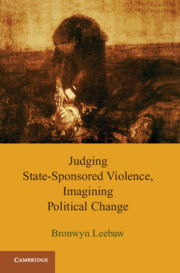Book contents
- Frontmatter
- Contents
- Acknowledgments
- 1 Introduction: Transitional Justice and the “Gray Zone”
- 2 Human Rights Legalism and the Legacy of Nuremberg
- 3 A Different Kind of Justice: South Africa's Alternative to Legalism
- 4 Political Judgment and Transitional Justice: Actors and Spectators
- 5 Rethinking Restorative Justice
- 6 Remembering Resistance
- 7 Conclusion: The Shadows of the Past
- Select Bibliography
- Index
- References
7 - Conclusion: The Shadows of the Past
Published online by Cambridge University Press: 05 June 2012
- Frontmatter
- Contents
- Acknowledgments
- 1 Introduction: Transitional Justice and the “Gray Zone”
- 2 Human Rights Legalism and the Legacy of Nuremberg
- 3 A Different Kind of Justice: South Africa's Alternative to Legalism
- 4 Political Judgment and Transitional Justice: Actors and Spectators
- 5 Rethinking Restorative Justice
- 6 Remembering Resistance
- 7 Conclusion: The Shadows of the Past
- Select Bibliography
- Index
- References
Summary
One wants to get free of the past; rightly so, since one cannot live in its shadow, and since there is no end to terror if guilt and violence are only repaid, again and again, with guilt and violence.
These lines are taken from a speech given by Theodor Adorno before a German audience in 1959, yet they aptly capture the hopes and anxieties associated with the contemporary pursuit of transitional justice. Adorno's speech was entitled, “What does ‘Coming to Terms with the Past’ Mean?” He outlined two responses to that question. Adorno began by warning that the idea of “coming to terms with the past” had become little more than a slogan. What appeared to be a preoccupation with addressing Germany's Nazi past was an elaborate form of denial, he argued. “Coming to terms with the past” had been equated with the goal of “mastering the past” or “turning the page” by wiping the past from memory. Against this emphasis on mastery, Adorno called for a process of “working through” the past. In making this distinction, he insisted that the project of addressing past injustices ought to be understood as an ongoing process – one that requires serious labor, and one that is never fully completed.
Adorno's complaint stands as a challenge to those who hold that too much attention to past wrongs is bound to open a Pandora's Box of destructive demands for redress or vengeance.
- Type
- Chapter
- Information
- Judging State-Sponsored Violence, Imagining Political Change , pp. 172 - 188Publisher: Cambridge University PressPrint publication year: 2011



